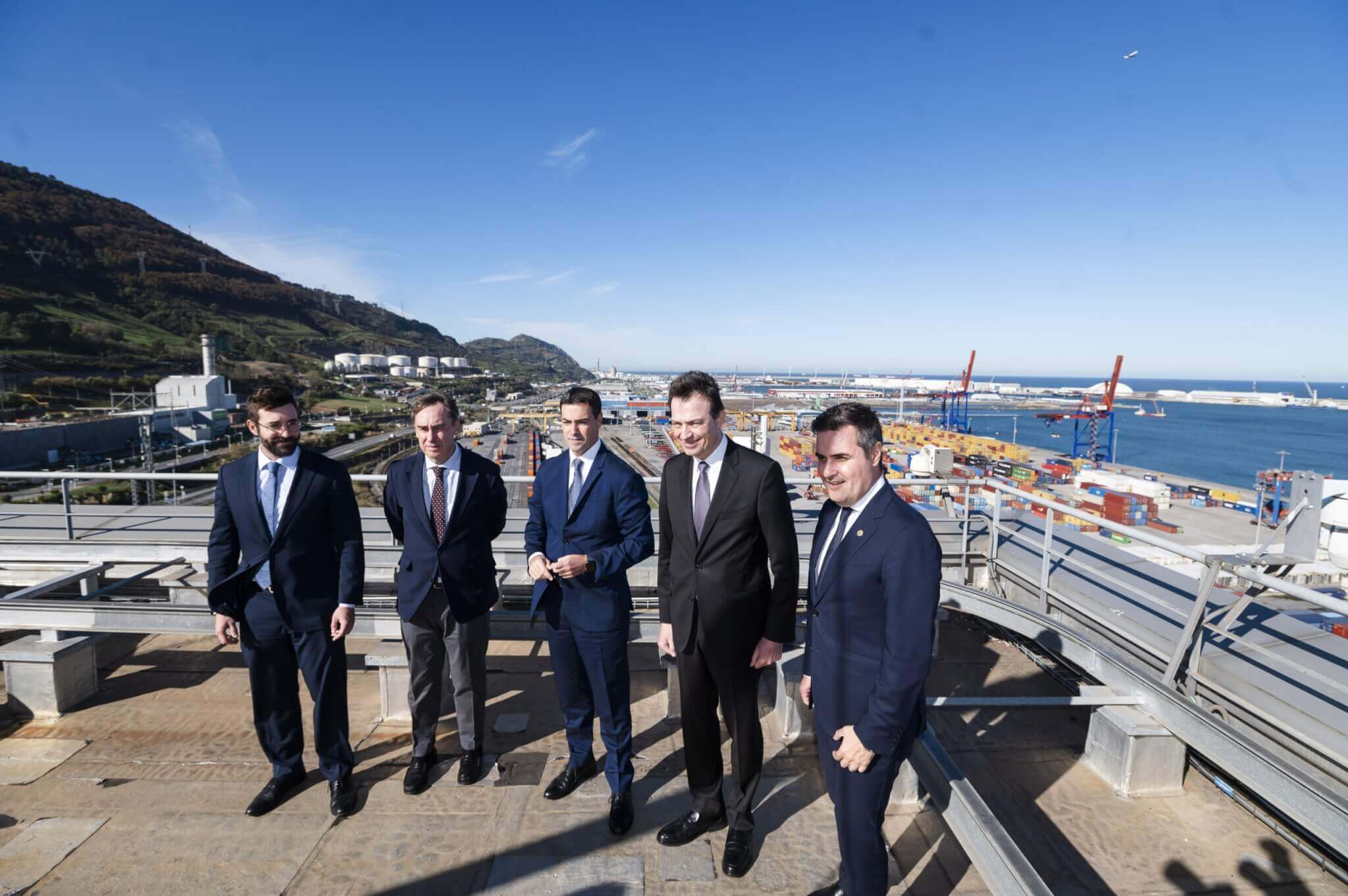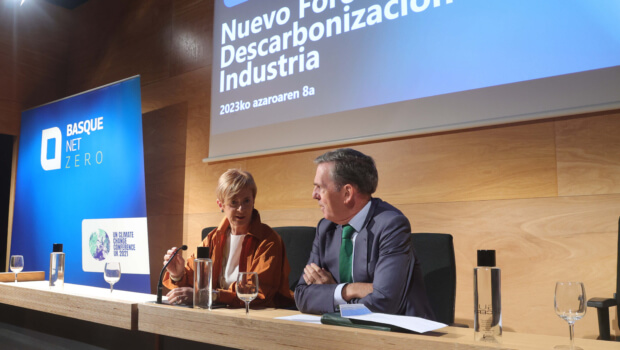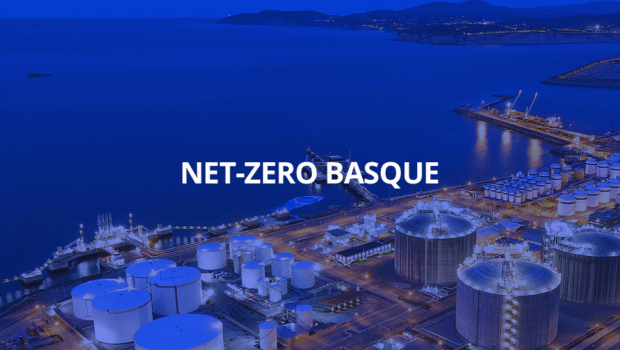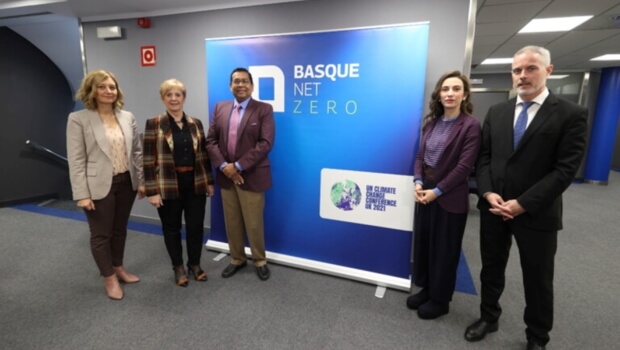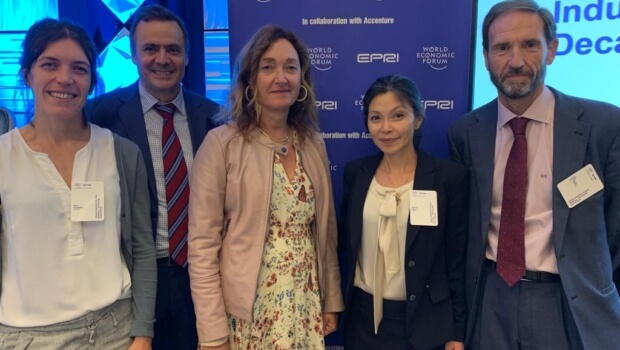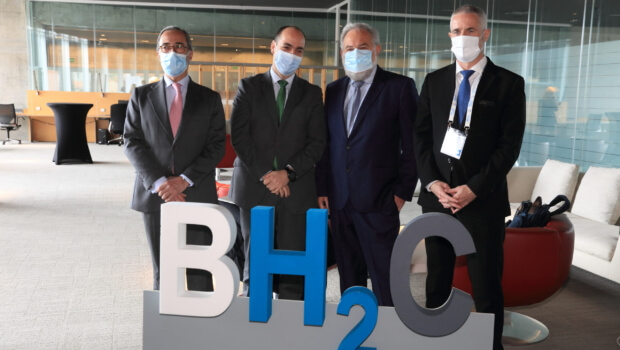The Basque Country strengthens its commitment to a “Better Industry, More Industry, and Fewer Emissions” with the rollout of the Hydrogen Backbone Network
Lehendakari (Basque Premier) Imanol Pradales has emphasized the need to decarbonize the Basque economic and development model as quickly as possible without losing competitiveness, stressing that “our employment, social cohesion, technological progress, environmental balance, and our strategic autonomy are at stake.”
Imanol Pradales, accompanied by the Basque Government’s Minister for Industry, Energy Transition and Sustainability, Mikel Jauregi, attended the presentation of the Hydrogen Backbone Network in Euskadi by Enagás at the Port of Bilbao.
During his address, the premier recalled that the Basque Country is taking decisive steps to position itself at the forefront of this transformation, noting that “the development of the hydrogen value chain is one of Euskadi’s strategic priorities.”
“This project is perfectly aligned with that priority, as it proposes a 163-kilometer pipeline network connecting the main industrial hubs of the Basque Country with hydrogen production centers. The network leverages synergies with existing infrastructures and is complemented by other projects under development, such as the one that will connect the Ayala Valley or the Bergara–Irún pipeline,” Pradales underlined.
In this regard, he reaffirmed the Basque Government’s firm commitment to actively participate in the development of this network through the Basque Energy Agency (EVE). This objective was also emphasized by the Minister for Industry, Energy Transition and Sustainability, who highlighted that this project “will position our country as a European leader in the energy transformation of industry through the development of this energy source.”
Mikel Jauregi stressed that the project is fully aligned with the Euskadi 2030 Industry Plan and European strategies. This initiative contributes to the development of cutting-edge energy infrastructures to meet the 2050 net-zero emissions targets and strengthens the security of supply, enhancing Euskadi’s energy sovereignty.
“This hydrogen backbone network represents another step forward in the industrial and energy decarbonization of the Basque Country. This new infrastructure places us as a benchmark for decarbonization at the European level. We believe in smart decarbonization—advancing in the energy transition while enhancing competitiveness—with an energy mix that, while involving electrification, also includes other clean technologies such as green hydrogen. The Basque Government participates in projects supporting this transformation in collaboration with industry and technology centers, showcasing our capabilities,” said Minister Jauregi.
Transformative Projects underway
The Euskadi 2030 Industry Plan, approved by the Basque Government, aligns with European strategic priorities—innovation, decarbonization, and strategic autonomy—contributing to the continent’s reindustrialization process. Euskadi is positioning itself as a technological and industrial benchmark within this renewed European momentum, a role recognized by the European Commission.
The development of the hydrogen economy, in addition to driving decarbonization, represents an opportunity to generate new industry around renewable fuels. This opportunity will foster new economic activity, employment, and resources to reinforce Euskadi’s welfare state.
The commitment to developing hydrogen and renewable fuels holds a strategic place within the Euskadi 2030 Industry Plan through the promotion and participation in projects such as the Decarbonization Valley and the Renewable Fuels Hub.
The Decarbonization Valley project aims to position the Basque Country as a benchmark in the energy transition by attracting investment, fostering innovation, and creating new high-value-added employment opportunities in sectors related to hydrogen and renewable fuels.
This strategy also includes an ongoing assessment of how to transform certain energy infrastructures to promote decarbonization, such as the Bahía de Bizkaia Electricidad (BBE) power plant located at the Port of Bilbao.
Currently, the BBE power generation plant produces electricity using natural gas as fuel. The new hydrogen infrastructure opens the door to replacing gas with green hydrogen, which would reduce Euskadi’s emissions and bring it closer to achieving net-zero targets by 2050.
Other major initiatives within this transformative project include the deployment of the hydrogen backbone infrastructure network—recognized by the European Union as a Project of Common Interest (PCI)—as well as the development of distribution networks, hydrogen generation through electrolyzers, and CO₂ network and storage systems.
Meanwhile, work is being finalized on the Renewable Fuels Hub, aimed at creating a technological and industrial cluster around hydrogen and renewable fuels.
Referring to this entire framework of projects, Minister Jauregi stated: “Our goal is to reduce emissions, and today we are taking another step forward. The Hydrogen Backbone Network is a fundamental part of the energy transition architecture we have designed in the Government. It represents smart decarbonization that helps our industry become more competitive, taking firm steps toward achieving our 2050 net-zero emission targets.”
